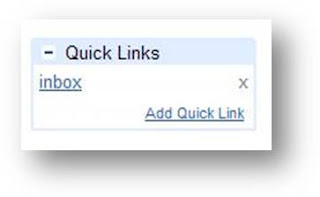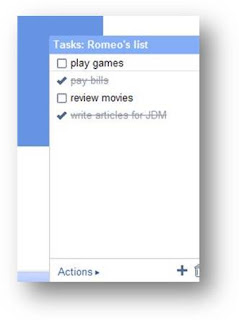
The recent onset of global financial crisis has dislocated many people from being unwavering to unstable, physical, emotional and financial. Without a job, most people nowadays have a problem not only financially based but emotionally too because of the stress of the financial pandemic that wrecks havoc to the world. Most people solely depend on their job to earn money. Without it they are like fish out of water, trying to gasp for air in panic and desperation.
However, the global financial crisis did not happen unexpectedly; overtime there were signs and projections in the past that would eventually lead to this. If we could only go back in time we would probably be more than willing to double up the precautions we have to do in order to be prepared about this situation we’re in. We would probably be budgeting twice as diligent as we are and most likely staying away from spending too much on unnecessary things. But it’s not yet too late.
Personal budgeting is the proper understanding of your own money. It is the proper way of managing and running your financial resources wisely with the goal of attaining financial stability. Think of budgeting as your roadmap into cruising and drifting along the money highway.
Simplicity is the key to a successful personal budgeting; it is a better way of understanding your money matters. Make all things in budgeting simple and easy, the simpler it gets, the easier it is to execute. Here are some simple steps and easy to follow guides to a healthy personal financial budgeting:
Prepare It. You need to set your mind first before anything else. You need to internalize that you are now taking control of your expenses and not the other way around. Most people fear of personal budgeting with the wrong notion of they might deprive themselves of the material things they are used to indulge with. However, depriving won’t happen if you will only set your plan realistically. Give some room for comfort but not for extravagance. If you will just stay on track with this mindset you will likely accomplish whatever it is in your financial plans.
Lay It. Write down your plans. Having it written and in blue print makes it easy to remind you and follow periodically. You cannot expect yourself to remember all your plans mentally and keep track of it. During the course there may be minor changes, depending on the situation say, like emergency expenses. If your plans are in writing it is easier to make necessary adjustments.
Be on the lookout for your projected inflow and outflow. These are the two components that you should focus on to put right.
Inflow means all the money going in but not limited to just your salary. It can be in the form of your sideline jobs, commissions, interest, dividends etc. Estimate your net monthly earnings; make an educated guess if there is an unexpected income for the month.
Your
outflow concerns about the
money you spend whether it be large or small. Find out how much your expected monthly expense will be. This may be in the form of rent, food, tuition fees, utilities, fuel etc. This is probably the tedious part of budgeting, I tell you but it’s worth it. You don’t have to go on to full details. Water and electricity can be lumped in one as utilities so long as you’re jotting it down. Most of the time there will be hidden or unexpected expenses along the way that’s why making room for “miscellaneous expenses” is necessary. Estimation is the key as expenses might not be recurring.
As the time passes, you will soon have the feel of all the inflow and outflow lists and most probably will get used to the estimation process of your budgeting. It is recommended to keep all your receipts with you in your bought items. This will help you estimate things and refer immediately to how much you are going to allocate with certain utilities or expenditures. Surely you can’t remember the prices of all the spending amount that you have done in the past but the receipts you keep will give you an idea.
Tip: Insert a savings portion in the first line of your outflow list. This will remind you to have an allocation for your savings.
Adjust It. Comparing the Inflow against the Outflow will probably give you a logical idea of your
money matters. The discrepancies may put a cringe on your forehead or a smile on your face. You will notice that there are certain months that your expenses soar high leaving your income at bay. If this happens, adjusting your expenses is the key. Try to trim down the list of your expenses on that particular ‘critical’ month. Try not to spend on not-so-necessary items during that month or might as well divert it to other months wherein the expenses is low or the income is high.
You can also divert/allocate money from the other month’s savings to the ‘critical month’ to buffer the expenses. Redistributing your money will probably cushion the effect. This happens mostly during the enrollment month of your children or during tax-paying month, so be on the lookout for it.
Note It. Keep a good record of your actual revenues and expenses and do it in a regular basis. There are fixed expenses like the rent, utilities, tuition fees, food, groceries etc., and there are expenses for leisure ones like movies, lunch out, coffee and concerts. Make it a habit to jot it all down. You can do it in an old-fashioned style like having a small notebook or download some free budgeting applications on the web or use your cell phone notepad, which ever you prefer.
The more frequent you list it the more comprehensive it will be. Put it in a scheduled task like every 15th and 30th of the month or in a certain date same as your payday. Be consistent. Sync it all together in a monthly basis and assess it. If your expenses were incurred through credit cards, it is important to note it on the day you purchase it not after the bill has arrived or the payment is due.
Track It. Always check if you are still within the track of your plan. Inconsistencies and deviations are most likely to occur. It’s perfectly normal as long as it is confined and through the course you will soon get the feel of budgeting accurately and all things will run and flow smoothly. If there are instances your budget deviations are big, review and analyze your lists and make necessary adjustments.
As you go along practicing your personal financial budget, you will soon discover new and hidden things about your expenses and your income. You will be able to answer the questions of ‘where does your money go’? And eventually have the answer of why you are working that hard for nothing. Personal financial budgeting will also provide you of a glimpse of your financial future and where you are heading in parallel to your savings and expenditure habit. An overview of money wasted and money spent wisely will be presented to you if you can do the budgeting realistically.
Let personal financial budgeting open your eyes and guide you to save for your future, because the more you save the faster it is you build your wealth and the more you are becoming financially secure especially for some unexpected turnaround of crisis.
Technorati Tags:budget planning, daily living tips, financial issues, savings, strategies
Generated By Technorati Tag Generator



































